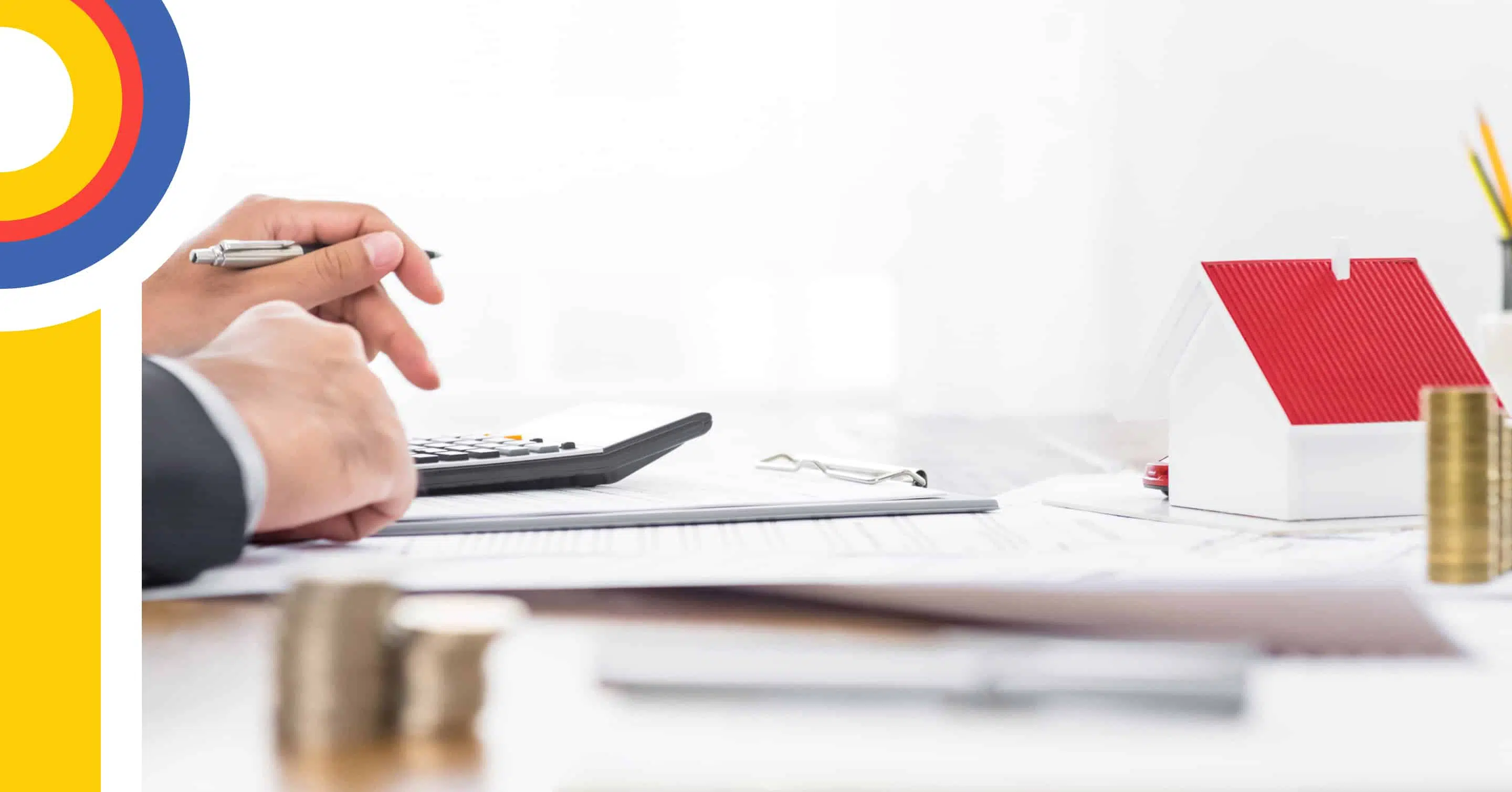Should You Pay Property Taxes With Your Mortgage?

When buying a home in Canada, you’ll need to make more than just your mortgage payments. Property taxes are a recurring expense that all homeowners must budget for. While first-time buyers, typically those purchasing with less than a 20% downpayment, are often required to pay property taxes as part of their mortgage payments, many will continue to pay them this way throughout the life of their mortgage.
Some lenders give you the option to include property taxes in your mortgage payments, while others may not even offer this service. More and more banks are leaving this responsibility with borrowers to reduce overhead costs associated with running large mortgage tax departments. Ultimately, it comes down to which option you feel more comfortable with and what your lender allows, all while ensuring your property taxes are paid on time.
Key Takeaways
- Paying property taxes with your mortgage can simplify budgeting and help prevent missed payments.
- Separating your tax payments offers greater control and potential interest gains but requires strong financial discipline.
- Lender policies vary; some require taxes to be bundled with the mortgage if the loan is insured.
What Are Property Taxes and How Are They Calculated?
Property taxes are the annual fees levied on homeowners by their local municipality to fund public services like schools, emergency services, libraries, and road maintenance. The amount you owe each year in property taxes is based on the assessed value of your property and the local property tax rate. For example, if your home is assessed at $500,000 and the property tax is 1%, your annual property tax bill would be $5,000.
Property taxes are payable directly to your municipality, unless your lender collects them on your behalf. It’s important to note that property tax rates and repayment schedules for the tax year vary significantly between municipalities. Therefore, homeowners should verify details with their local municipality to ensure timely payments.
What Does It Mean to Pay Property Taxes with Your Mortgage?
Paying property taxes through your mortgage means your lender takes responsibility for collecting and remitting your annual tax bill. To do this, the lender estimates your yearly property taxes, divides that amount into installments based on your payment schedule (monthly, biweekly, weekly, etc.), and adds it to your regular mortgage payment.
The amount that goes toward your property taxes is held in a separate escrow account until the bill is due. This arrangement can provide peace of mind for homeowners who prefer a single payment. Rather than tracking property tax installment due dates or making lump-sum payments to the municipality, everything is bundled into the mortgage at a consistent amount, reducing the chance of late payments and penalties.
How Do Lenders Calculate the Property Tax Amount?
To determine the amount to add to your mortgage payment, your lender will refer to the most recent property tax assessment from your municipality. They divide the annual total by your mortgage payment frequency, which is the number of mortgage payments you make per year. They may also include an extra amount to act as a small buffer. This buffer ensures your account doesn’t fall short when the tax bill comes due.
If your actual property tax bill turns out to be higher than expected, your lender may recalculate and adjust your payment accordingly. Overpayments can sometimes result in adjustments to lower future payments.
Which Lenders Offer the Option to Include Property Tax?
Most Canadian lenders, including banks, credit unions, and monoline lenders, may offer the option to include property taxes in your mortgage. However, this may not always be a choice, and some lenders are moving away from allowing property taxes to be paid with your mortgage.
However, high-ratio mortgages (where less than 20% is put down) often require property taxes to be paid through the lender as part of risk management. This can act as a safeguard to prevent municipalities from issuing tax liens that could affect the lender’s interest in the property. Tax liens on your property can reduce the position of your first mortgage lender’s charge against your home’s title. Therefore, your lender will seek to remedy any liens to maintain its first position in the event of default, ensuring that it is paid off before any other creditors. If you’re applying for an insured mortgage, expect that this will likely be a requirement for your mortgage, as you have less equity in your home.
Pros of Paying Property Taxes Through Your Mortgage
For many homeowners, consolidating their property tax bill into their mortgage payment offers convenience and peace of mind. Instead of remembering separate due dates, everything is paid automatically on a predictable schedule with their mortgage payments. This approach can be particularly beneficial for individuals new to homeownership or those managing tight budgets.
Key advantages include:
- Convenience: One single payment covers both mortgage and taxes, streamlining financial planning.
- Peace of mind: Your lender ensures taxes are paid on time, avoiding late fees and municipal penalties.
- Mandatory for some mortgages: If you have an insured mortgage, your lender will likely require this setup.
- Budgeting support: Spreads a large annual cost into manageable amounts rather than a larger lump sum.
Cons of Paying Property Taxes Through Your Mortgage
Although it simplifies budgeting, bundling property taxes into your mortgage has some potential downsides. Homeowners who prefer complete financial control may find this setup restrictive. You’re essentially giving your lender control over funds that you could otherwise manage independently.
Key disadvantages include:
- Less control: The lender holds your tax payments in escrow, and you don’t earn interest on that money.
- Higher mortgage payments: Your regular mortgage payment will be larger, which may impact your day-to-day cash flow.
- Adjustments may be possible: If tax rates rise or assessed values change, your lender will likely adjust your mortgage payments to reflect these changes.
- Overcollection/Undercollection risk: Some lenders may build in a conservative buffer, which could result in an overfunded or underfunded account.
Beginning your home journey?
Start with a low rate.
Chat with a nesto expert today, commission-free, and secure your rate.
When Does Paying Property Taxes with Your Mortgage Make Sense?
If you’re a first-time buyer or someone who finds financial management with different payment dates stressful, this setup can help you stay organized and avoid costly penalties for missing a payment due date. It’s also a good choice if you’re managing multiple recurring bills or find it easier to have predictable monthly expenses.
Those with insured mortgages or a history of missed payments might not have a choice, as lenders want to reduce the risk of tax defaults. This method adds a layer of security that benefits both you and your financial institution.
Who May Want to Pay Property Taxes Separately?
If you possess strong budgeting skills and prefer direct control over your finances, paying your property taxes independently can be a better option. This method allows you to set aside funds in a high-interest savings account or investment until the tax deadline, potentially earning you small returns while you wait.
This approach can be especially appealing to experienced homeowners, those with variable income streams, or anyone who prefers greater flexibility in managing lump-sum expenses. However, it requires careful planning and reliable financial discipline to ensure you have the funds available when they’re due.
What Happens If You Miss a Property Tax Payment?
Failing to pay your property taxes on time can result in severe consequences. Municipalities may charge interest and late fees if you miss a payment, increasing the amount you will owe.
Prolonged delinquency, with multiple missed payments, can result in a tax lien being placed against your home. A tax lien gives the city the legal right to recover the unpaid amount from your mortgage lender, which can jeopardize your homeownership.
How Property Taxes Affect Mortgage Qualification
Whether or not you include property taxes in your mortgage payment, they influence your mortgage approval and affordability. Lenders calculate your Gross Debt Service (GDS) and Total Debt Service (TDS) ratios using your monthly carrying costs of owning a specific property. When property taxes are included in this calculation, this can impact these ratios, which could reduce the size of the mortgage you qualify for.
Frequently Asked Questions (FAQ) About Adding Property Taxes to Your Mortgage Payments
Is it better to pay property taxes through your mortgage in Canada?
While no single approach is inherently better than the others, the answer typically depends on your personal preferences. Paying through your mortgage is convenient and avoids missed payments. Paying separately offers flexibility but requires more discipline to have the amount available when your property taxes are due.
Can I switch from paying taxes through my mortgage to paying them directly?
Some lenders allow you to choose after a certain period of time or amount of equity, provided your mortgage is in good standing. Always review the terms and conditions of your mortgage contract before considering any changes.
Are there fees for having property taxes included in my mortgage?
Generally, no direct fees apply to have this option if the lender requires it; however, if it is an option for your situation, then the lender may charge a small annual fee.
Lenders charge interest on negative escrow balances if you don’t have enough saved up to cover the full amount of property taxes when they are due. Your mortgage payment may also be adjusted periodically to account for any shortfalls or, in some cases, overcontributions to the tax account.
Final Thoughts
Whether you choose to pay your property taxes through your mortgage or handle them separately, the key is understanding how each approach fits with your overall financial habits and comfort level.
For some, simplicity and peace of mind outweigh the downsides of having your lender remit property taxes on your behalf. For others, especially those with strong budgeting skills, managing taxes independently can be a smart move to earn a few extra dollars in interest while you wait for the payment due dates.
Contact a nesto mortgage expert who can help you build a mortgage payment strategy that fits your budgeting style and goals.
Why Choose nesto
At nesto, our commission-free mortgage experts, certified in multiple provinces, provide exceptional advice and service that exceeds industry standards. Our mortgage experts are salaried employees who provide impartial guidance on mortgage options tailored to your needs and are evaluated based on client satisfaction and the quality of their advice. nesto aims to transform the mortgage industry by providing honest advice and competitive rates through a 100% digital, transparent, and seamless process.
nesto is on a mission to offer a positive, empowering and transparent property financing experience – simplified from start to finish.
Contact our licensed and knowledgeable mortgage experts to find your best mortgage rate in Canada.
Ready to get started?
In just a few clicks, you can see our current rates. Then apply for your mortgage online in minutes!



